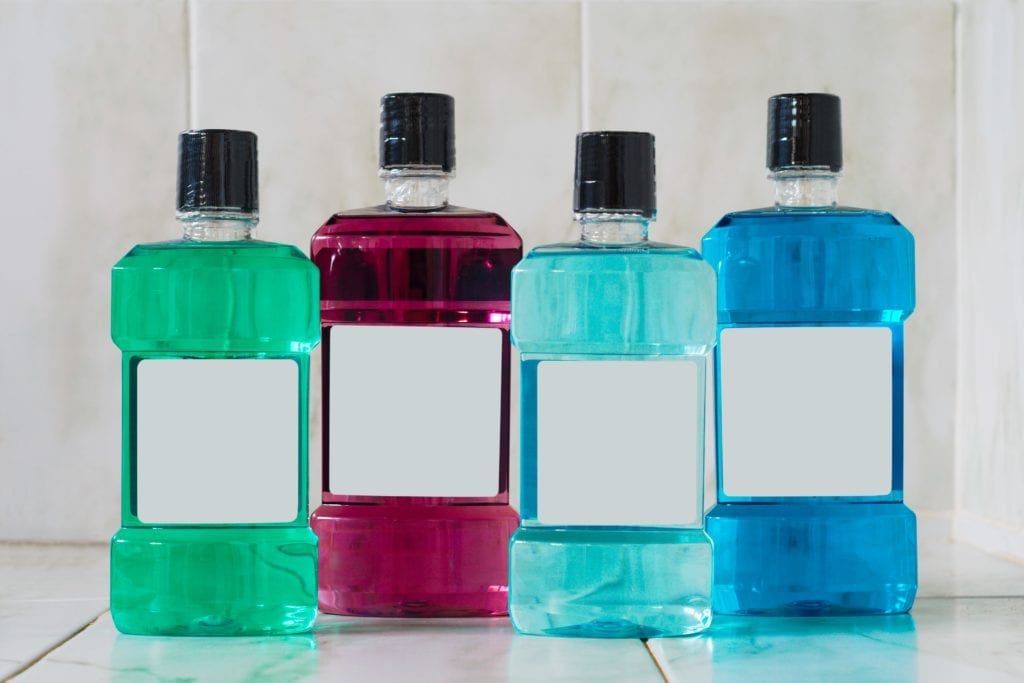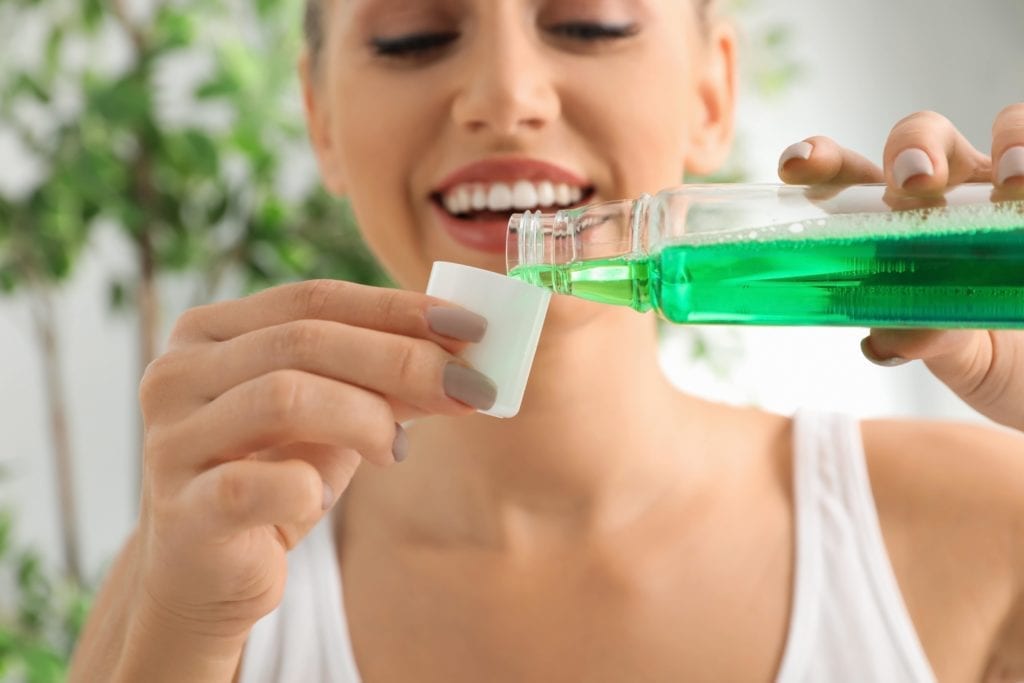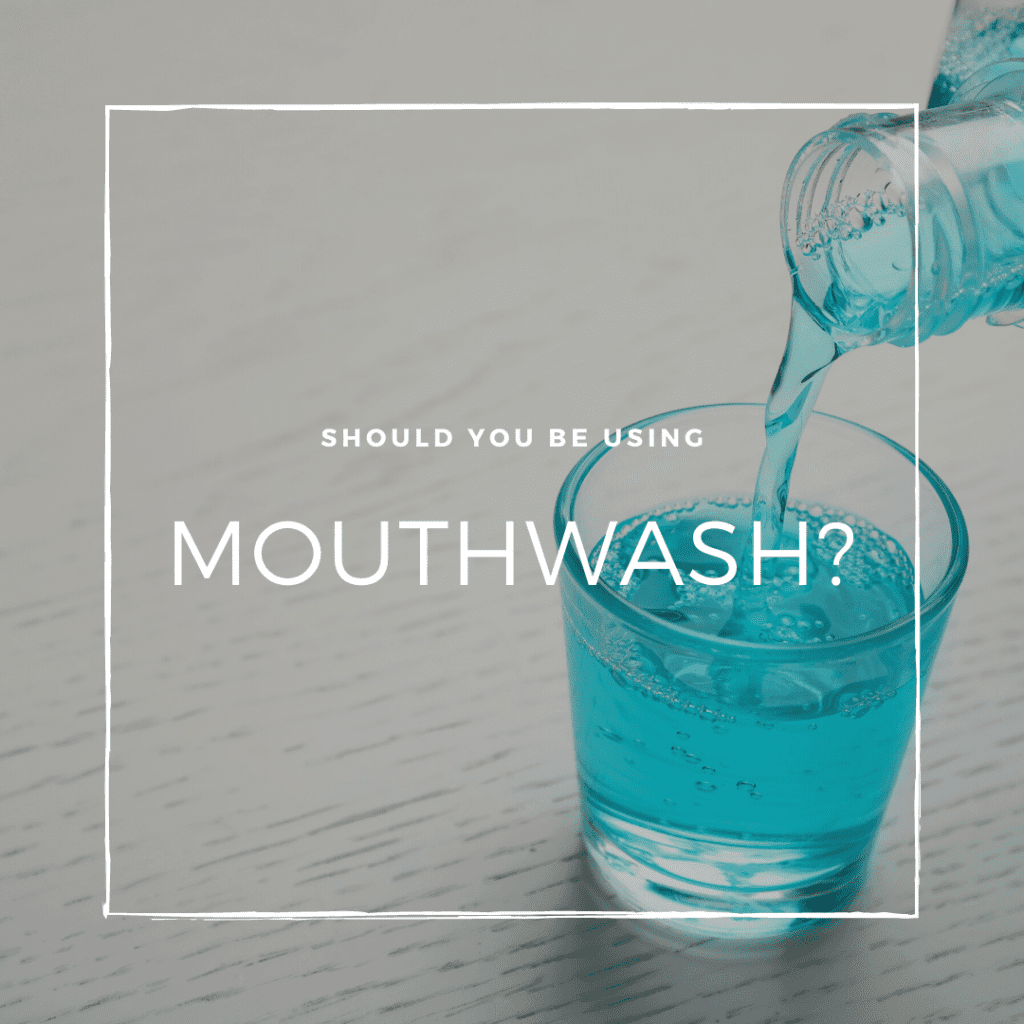Do you use mouthwash? Have you ever wondered if there are any benefits to using mouthwash or if regular brushing and flossing is enough to keep your teeth and gums healthy? If you have found yourself wondering about the efficacy of mouthwash, you are not alone. Despite the fact that there are a variety of over the counter mouthwashes, they are not as well understood as toothbrushes, toothpastes, or dental floss. Therefore, we are going to take a deeper look into whether or not you should be using mouthwash.
What is mouthwash?

Mouthwash, also known as mouth rinse or oral rinse, is a liquid that is vigorously swished around the mouth to get into the places that brushing and flossing miss, then it is spit out along with any remaining debris. There are two main types of mouthwash. The first is cosmetic mouthwash, which provides a temporary solution to bad breath by masking odors. The second type is therapeutic mouthwash, which contains specific ingredients that actually make changes in the mouth. Just like toothpaste contains certain ingredients that benefit your oral health, therapeutic mouthwash also contains specific ingredients such as:
- Cetylpyridinium chloride: reduces bad breath
- Chlorhexidine: controls plaque and gingivitis (prescription only)
- Essential oils (eucalyptol, menthol, thymol, methyl salicylate): controls plaque and gingivitis
- Fluoride: strengthens tooth enamel to prevent decay
- Peroxide: used as a whitening agent in whitening mouthwashes
Should YOU Be Using Mouthwash?
While people may use cosmetic mouthwash from time to time to freshen their breath, many people are not sure when they should use a therapeutic mouthwash. Generally speaking, therapeutic mouthwashes can be beneficial for anyone over the age of six. However, some people can derive more benefits from regular mouthwash use than others. If you have any of these dental conditions, then you are likely to benefit from using mouthwash twice a day after brushing and flossing:

- Stained Teeth: while mouthwash will not whiten your teeth to the same extent as a whitening treatment, whitening mouthwashes can help to lighten your teeth by removing superficial stains. They can also make it harder for new stains to form, which prevents stained teeth from getting worse. When using mouthwash for stained teeth, be sure to look for one that contains carbamide or hydrogen peroxide.
- Tooth Decay: mouthwash cannot treat tooth decay that has already occurred, however it can prevent tooth decay from happening in the first place. Mouthwash made for cavity prevention contains fluoride, which strengthens the enamel to make it more resistant. Fluoride can also reverse the earliest stage of cavity formation known as demineralization.
- Gum Disease: plaque that accumulates along the gum line causes the gums to become inflamed. The early stage of gum disease is known as gingivitis, while the advanced stage is known as periodontitis. Mouthwash containing essential oils is effective against preventing plaque accumulation and killing off excess bacteria. In some cases, your dentist may also prescribe mouthwash containing chlorhexidine. However, this is only meant to be used temporarily, since it can cause staining.
- Dry Mouth: dry mouth is a condition characterized by decreased salivary flow. Unfortunately saliva is essential for keeping the mouth clean and flushing out excess bacteria. This means people with dry mouth are more likely to develop tooth decay and gum disease. Therefore, it is recommended to use a mouthwash formulated for treating dry mouth. These mouthwashes contain ingredients such as fluoride, enzymes, cellulose derivatives, and/or animal mucins in order to replicate saliva.

Dr. Admar holds dual certificates — a Bachelor of Dental Surgery (BDS) in 2010 from India and a Doctor of Dental Surgery (DDS) in 2014 from Canada. He is now a full time practicing dentist in Kamloops where he provides a variety of services. Dr. Admar spends hundreds of hours in continued dental education to stay up to date in cosmetic and implant dentistry and he has achieved several advanced qualifications.


